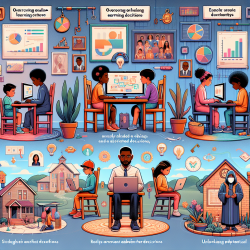Harvey's research was not merely a collection of "ocular demonstrations" and "reasoned arguments," but a blend of empirical observation and literary finesse. His commitment to the truth and his ability to communicate complex ideas through relatable metaphors and analogies can inspire SLPs to adopt a more holistic approach to their practice.
Here are key takeaways from Harvey's approach that SLPs can implement to enhance their practice:
- Commitment to Empirical Evidence: Harvey's work was rooted in meticulous observation and empirical data. SLPs should prioritize evidence-based practices, using data to inform their decisions and interventions.
- Challenging Established Norms: Harvey was not afraid to challenge the established medical beliefs of his time. SLPs should remain open to new research and be willing to adapt their methods in light of new evidence.
- Holistic Communication: Harvey's use of literary references and analogies made his complex ideas more accessible. SLPs can benefit from employing clear and relatable communication strategies to explain their interventions to parents, teachers, and other stakeholders.
- Collaboration and Sharing Knowledge: Harvey's decision to publish his findings was driven by a desire to share knowledge for the greater good. SLPs should actively engage in professional communities, sharing insights and learning from peers to continually improve their practice.
Harvey's soliloquy underscores the importance of humility and the willingness to learn from others, regardless of their age or status. This is particularly relevant for SLPs working with children, as young clients often provide unique insights that can inform more effective therapeutic approaches.
To further enhance your skills and outcomes for children, consider the following actionable steps:
- Engage in Continuous Professional Development: Stay updated with the latest research and advancements in speech-language pathology. Attend workshops, webinars, and conferences to expand your knowledge base.
- Utilize Technology: Leverage online therapy platforms, like those offered by TinyEYE, to provide accessible and flexible services to children, especially in underserved areas.
- Incorporate Multidisciplinary Approaches: Collaborate with other professionals, such as educators, psychologists, and occupational therapists, to create comprehensive intervention plans tailored to each child's needs.
- Reflect and Adapt: Regularly evaluate the effectiveness of your interventions and be willing to make necessary adjustments based on data and feedback.
William Harvey's journey was one of persistence, curiosity, and a relentless pursuit of truth. By embracing these principles, SLPs can significantly improve their practice and create better outcomes for children.
To read the original research paper, please follow this link: William Harvey's Soliloquy to the College of Physicians: Reprising Terence's Plot










